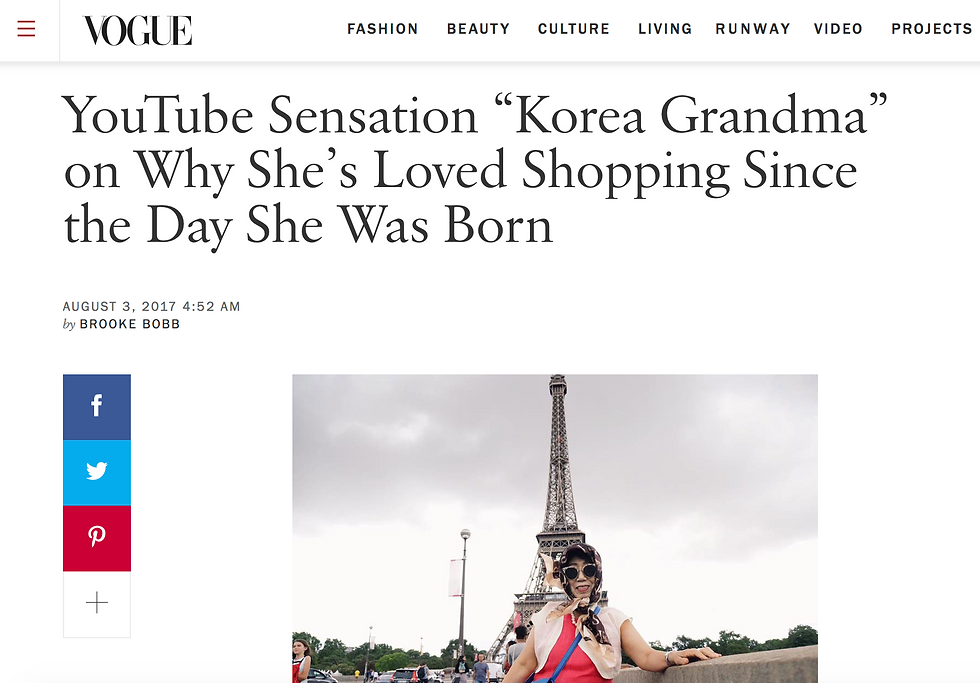Women in Korea (3) IMF 1997
- J M
- 2016년 1월 15일
- 2분 분량
We had IMF in 1997. IMF (International Monetary Funds), this economic crisis leads to the “reversal of traditional gender roles and endangered the stability of the patriarchal nuclear family system” (Kim 2008, p.392). Due to the worsening of economic conditions, women had to come out of the houses to work rather than being good mothers and wives at home. They had to be good mothers and wives at home and at the same time, these women had to work outside of home to earn money. In other words, women in Korea during IMF, they became breadwinners as well. However, most ajumma were part time lower-paid workers such as cashers at supermarkets.

image from the movie ‘Cart (2014)’, <http://www.asiae.co.kr/news/view.htm?idxno=2014103011094055036>
Even though they were part time workers who got low pay, they worked really hard because they believed that the improvement of each family’s economic condition can be a cornerstone of Korea’s economic growth. People in Korea during IMF, they tried to overcome the IMF together. However, still it blew to every family’s economy. In May 1998, more than 80% of households in Korea suffered very much in the reduction of income. Fathers lost their jobs so they could not fulfil the role of fathers and husbands in their family.

image from Monthly Chosun <https://monthly.chosun.com/client/news/viw.asp?nNewsNumb=201101100071>
In 1998, there were 42% increase of suicide rate compared to the previous year. Male had higher percentage than female in the report. It could be assume that fathers couldn’t able to do their duties to their families because of unemployments and crippling debts. Therefore, mass media encourages people to recognise the importance of their fathers in the family. For example, “save the head of the family”, “encourage men” and “support and cheer up our fathers”. Besides, people do various campaigns for the nation and gold collection was one of them. I will post about ‘gold collection’ campaign soon.
TV Commercial in 1997 by KIA motors “We can do it!”
Reference: (1) Kim, S 2008, ‘Feminist Discourse and the Hegemonic Role of Mass Media’, Feminist Media Studies, vol. 8, no. 4, pp. 391-406.




댓글